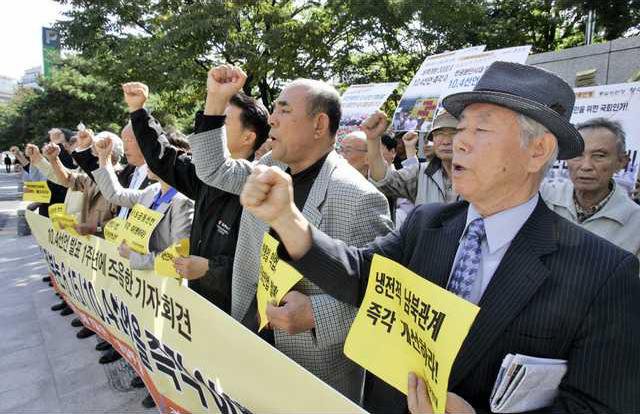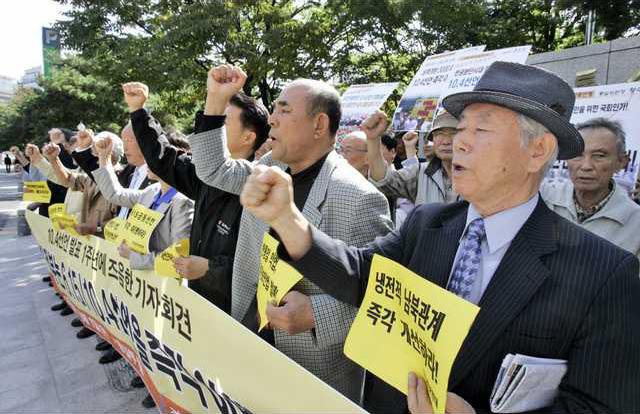SEOUL, South Korea — Washington’s top nuclear negotiator drove to the capital of communist North Korea on Wednesday with a possibly face-saving proposal to persuade the Stalinist regime to honor a nuclear disarmament deal.
State Department spokesman Sean McCormack stressed that envoy Christopher Hill would not offer substantive changes but would propose alterations in ‘‘choreography’’ that could give North Korea a way out of the current impasse.
Negotiations to disarm the North have stalled since the communist state abandoned a deal struck in February 2007, accusing the U.S. of refusing to fulfill a promise to remove it from a terrorism watchlist. The U.S. maintains that the deal required the North to submit to a thorough verification of its nuclear accounting — a demand the isolated regime has balked at.
McCormack said that Hill would not offer North Korea a new way of verifying its atomic list, but suggest ways to adjust the sequencing of steps the parties have agreed to take.
A senior U.S. official had earlier said Hill would offer a proposal that would have North Korea agree to a verification program but submit details first to its Chinese allies. The official spoke on condition of anonymity.
Hill went into the North through the heavily fortified Demilitarized Zone dividing the two Koreas, U.S. Embassy spokesman Aaron Tarver said.
The visit comes amid reports that the North’s autocratic leader, Kim Jong Il, suffered a stroke in August. Kim, 66, has not been seen in public in more than a month, raising concerns that his prolonged illness or sudden death could destabilize the Korean peninsula.
Relations between the two Koreas — which technically remain at war and are divided by the world’s most heavily armed border — have been frayed in recent months. Ties further deteriorated after a North Korean army guard fatally shot a South Korean tourist at a mountain resort in the North in July.
After an eight-month diplomatic freeze, the sides agreed to hold military talks inside the DMZ on Thursday. The working-level talks will be the two Koreas’ first official meeting since Seoul’s new president, Lee Myung-bak took office in February with a pledge to take a hard-line stance on North Korea.
In mid-August, Pyongyang stopped disabling and began restoring its nuclear facilities and last week ordered U.N. nuclear monitors to leave its Yongbyon nuclear facility in violation of an international accord.
In a further sign of Pyongyang’s defiance, South Korea’s Yonhap news agency reported indications that the North had begun restoring the site where it conducted its first nuclear test blast in October 2006.
Smoke was seen rising from the Punggyeri site in the country’s northeast, Yonhap cited an unidentified South Korean government official as saying. The official said it could indicate North Korea is trying to repair the site for use.
South Korea’s Defense Ministry said Wednesday it could not confirm the report.
Hill met with his North Korean counterpart Kim Gye-Gwan on Wednesday in an effort to try to persuade the regime to return to the nuclear pact, the State Department said.
‘‘He wasn’t bringing with him any new substance in terms of proposals,’’ McCormack told reporters in Washington. ‘‘He was talking about the choreography, but not breaking with precedent.’’
McCormack noted that China has in the past served ‘‘as a repository for documents and information’’ and could do the same with the verification protocol. But, he also stressed that the North Koreans had to agree to the intrusive steps the United States is demanding.
‘‘The ball is in the North Koreans’ court,’’ he said. ‘‘They have to reverse their reversal and they have to approve a verification regime.’’
The U.S. official suggested that if the North agreed to a verification plan, the U.S. would provisionally remove North Korea from the terrorism sponsors list.
U.S. officials said they were not sure North Korea would agree to the idea or, if they did, whether any Pyongyang proposals presented to the Chinese would be acceptable to Washington.
Hill is scheduled to head back to Seoul on Thursday and on to Beijing on Friday, the State Department said.
———
Associated Press writers Kwang-tae Kim in Seoul and Matthew Lee in Washington contributed to this report.
US envoy takes new nuclear proposal to NKorea


Sign up for the Herald's free e-newsletter